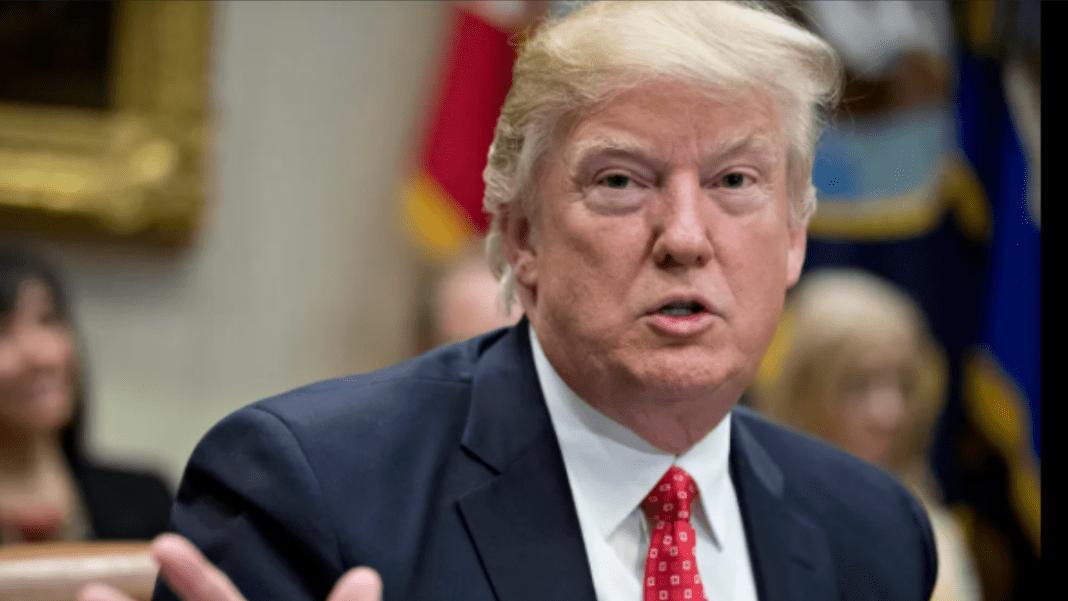The tension between the United States and Spain has reached a new level after U.S. President Donald Trump issued a NATO ultimatum, calling for Spain to be expelled from the alliance. The statement came during his meeting with Finland’s President Alexander Stubb on October 9, where Trump sharply criticized Spain for failing to meet defense spending goals. He described Spain as a “laggard,” suggesting that NATO should “throw them out.”
Rising Rift Over Trump’s NATO Ultimatum
Trump’s NATO ultimatum has been building since his return to the White House in January 2025. He has repeatedly demanded that all NATO members raise their defense spending to 5% of GDP, far above the alliance’s original 2% guideline. This demand was formalized at the NATO Summit in The Hague earlier this year, where all member nations agreed to work toward the 5% target by 2035 — except Spain.
According to NATO data, Spain’s defense spending remains below 1.2% of its GDP, making it one of the lowest contributors in the alliance. Spanish leaders argue that increasing it to 2.1% of GDP would be sufficient to fulfill their defense obligations. Madrid has stated that the NATO ultimatum to raise spending to 5% is both unrealistic and economically unnecessary.
Peace Prize prompts Norway to consider tariffs and NATO demands if Trump is overlooked
Trump, however, reacted angrily, saying it was “unfair” to the other NATO members. He warned that Spain’s economy “could be blown right out of the water” if it refused to comply with the NATO ultimatum. He even threatened to make Spain “pay twice as much” in trade deals, escalating the confrontation further.
The President’s comments mark a rare moment where a NATO leader directly targeted another ally for possible expulsion. Even in previous disputes, such as those involving Turkey, Trump never explicitly called for removal from NATO. This makes the NATO ultimatum toward Spain a unique and serious diplomatic flashpoint.
NATO Ultimatum Deepens with China Ties and Israel Embargo
Beyond defense spending, Spain’s recent actions have further strained ties with Washington. A major concern is Madrid’s growing cooperation with China. Earlier this year, Spain awarded a €12.3 million contract to Huawei for storing judicial wiretaps — a move that alarmed the U.S., which views Huawei as linked to the Chinese Communist Party (CCP) and a national security risk.
Although Spain insists the deal complies with EU cybersecurity standards, U.S. lawmakers urged a review of intelligence sharing, seeing the move as undermining alliance trust. For Washington, such steps contradict the spirit of Trump’s NATO ultimatum, which emphasizes stronger cooperation and shared security goals among member states.
Trump threatens NATO with ultimatum: no unity, no sanctions on Russia
Tensions escalated further when Spain imposed a total arms embargo on Israel in September 2025, banning ships, planes, and individuals connected to the Gaza conflict. The U.S. State Department called the move “deeply concerning,” arguing it could weaken Western unity. Together, Spain’s Huawei deal and its pro-Palestinian stance have isolated Madrid within NATO, reinforcing the view that it is defying Trump’s NATO ultimatum.
The Fighter Jet Factor and Strategic Fallout
The disagreements do not stop at diplomacy and foreign policy. Spain’s decision to reject the American F-35 fighter jet program has added another dimension to the conflict. In August 2025, Madrid officially declared that it would not proceed with the F-35 Joint Strike Fighter, instead choosing to continue operating the Eurofighter Typhoon and investing in the Future Combat Air System (FCAS), a European sixth-generation aircraft project.
For Washington, the F-35 is not just a jet — it symbolizes defense partnership and alliance loyalty. Spain’s withdrawal from the program was seen as another blow to U.S.-led defense cooperation. Other NATO countries such as Portugal and Canada have also expressed doubts about the F-35 due to high costs and persistent technical issues, but Spain’s outright rejection stood out during the ongoing NATO ultimatum debate.
Reports from Spanish media indicate that Madrid might temporarily consider buying Turkey’s KAAN fighter jet until the FCAS is ready. According to Spanish newspaper El Economista, such a move would “buy time” for Spain’s air force while waiting for Europe’s next-generation aircraft. This indicates that the F-35 was fully out of consideration, adding another irritant to U.S.-Spain relations.
Mystery drones swarm top-secret NATO weapons factories in Belgium, Thales raises alarm
Experts believe that the NATO ultimatum has become more than a demand for money — it has turned into a test of political loyalty within the alliance. Spain’s decisions, from refusing the F-35 to forging closer ties with China and adopting a pro-Palestinian stance, appear to challenge the very foundations of the NATO ultimatum itself.
With defense spending still under 1.2% and multiple points of disagreement piling up, Madrid’s position within NATO looks increasingly strained. Trump’s repeated mention of Spain as the “only country that won’t pay up” underscores how the NATO ultimatum has evolved into a broader symbol of distrust and divergence within the alliance.
